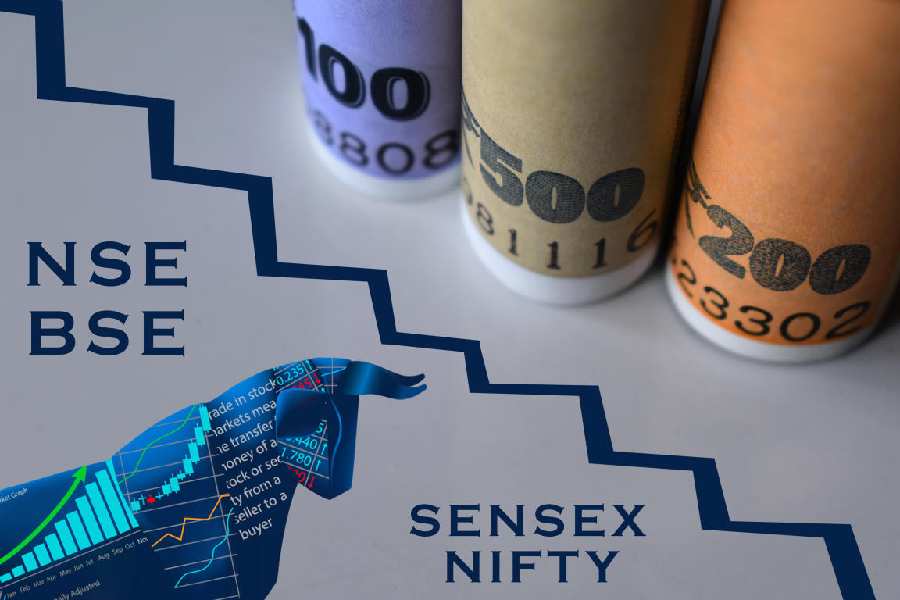Rising tensions in West Asia rattled stocks on Monday with the BSE Sensex plummeting more than 845 points and the broader markets, already grappling with expensive valuations, ending with deep cuts.
Investors turned jittery as they feared Israeli retaliation against Iran’s aerial attack on Saturday.
Any aggressive response by Tel Aviv is seen as having adverse consequences in the form of rising crude oil prices and investors taking refuge in safe-haven assets such as bonds and the dollar.
While Israel has so far not indicated any immediate military action, observers feel the potential for an escalation could keep stocks under pressure at a time markets have pushed back the expectations of an interest rate cut from the US Federal Reserve from July.
Reflecting the jittery mood, the 30-share BSE Sensex opened on a weak note at 73315.16 and tanked 929.74 points or 1.25 per cent to touch the day’s low of 73315.16.
It subsequently ended at a more than two-week low of 73399.78, a fall of 845.12 points or 1.14 per cent. On the NSE, the broader Nifty declined 246.90 points or 1.10 per cent to settle at 22272.50.
``Weakness in the global market on account of the Iranian attack on Israel, persistent concerns over higher-for-longer US interest rates, and weak earnings, weighted on Indian equities," Siddhartha Khemka, head — retail research, Motilal Oswal Financial Services said.
"Further, India's WPI inflation accelerated to a three-month high of 0.53 per cent in March, driven by food and primary articles dampening the sentiments. Thus, we expect domestic markets to witness near-term headwinds amid rising volatility,’’ he said.
Rupee cracks
The Iran-Israel conflict also had its impact on the rupee which settled at an all-time closing low against the dollar.
Market circles said that while falling equities put pressure on the domestic currency, it was helped by likely intervention from the Reserve Bank of India (RBI).
At close, the rupee settled at 83.45 against the dollar, a drop of three paise over its last close.










